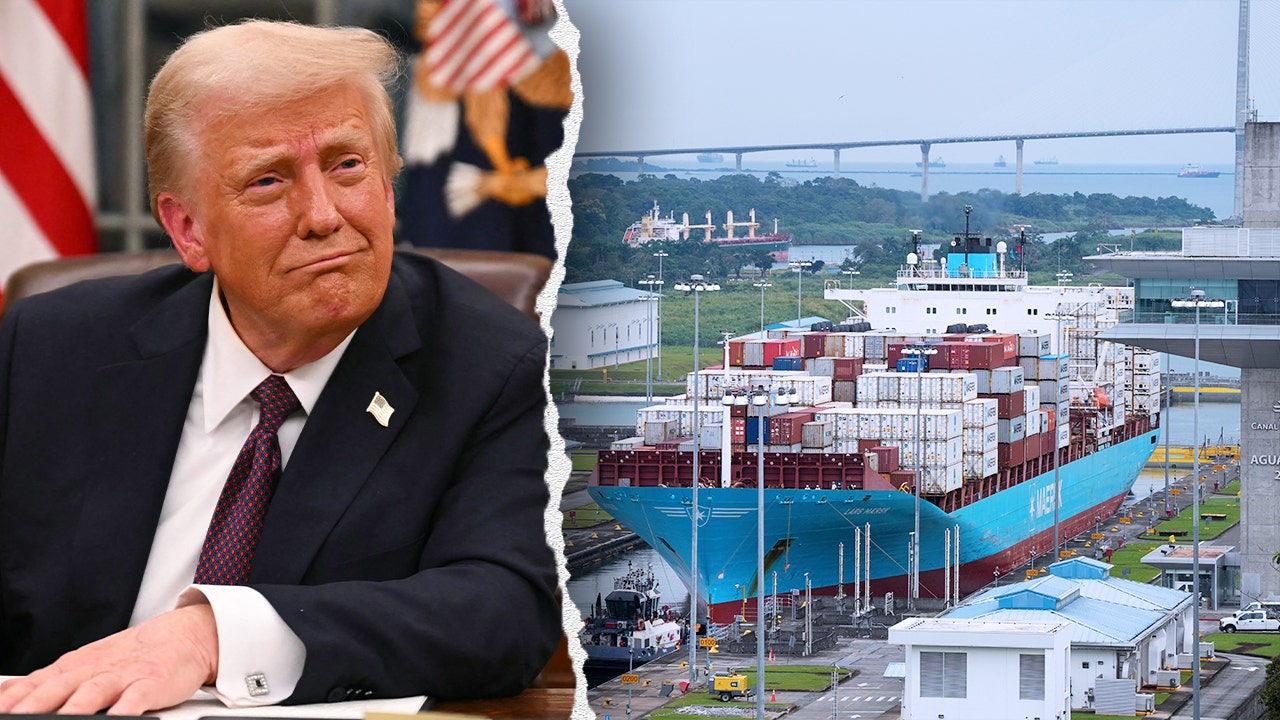The Panama Canal has historically been a focal point of geopolitical interest and economic strategy for the United States. Its construction, completed in 1914, was a monumental engineering feat that significantly altered maritime trade routes and global shipping. However, the implications extend far beyond mere logistics; they delve deep into cultural perceptions and historical narratives that fuel contemporary discussions about U.S. control over the canal. The recent discourse surrounding plans related to the Panama Canal invokes both nostalgia and strategic interests. This article explores the complex tapestry of U.S. involvement in the Panama Canal through the lens of cultural relativism, addressing the fascination rooted in historical dynamics and presenting a nuanced understanding of contemporary assertions of influence.
First, it is essential to examine the historical backdrop against which these discussions unfold. The construction of the canal was not merely a construction project; it symbolized the United States’ burgeoning imperialism and its aspirations to establish itself as a global hegemon. The U.S. acquisition of the canal zone was initially underpinned by the Hay-Bunau-Varilla Treaty of 1903, which granted the United States unprecedented control. The narratives surrounding this acquisition often reflect a paternalistic attitude towards Panama, encapsulated in the belief that U.S. intervention was a civilizing mission. Herein lies a significant point of cultural relativism: the American perception of their actions as benevolent contrasts starkly with the Panamanian perspective, which may interpret these actions as neocolonialism.
The intrigue surrounding the notion of “taking back” the Panama Canal evokes a sense of American supremacy that might be derived from the prevailing belief in exceptionalism. This belief posits that the U.S. possesses a unique role in global affairs, often framing discussions about foreign policy and territorial control. However, the term “taking back” is particularly laden with sentiment—suggesting a restoration of former glory, which can be understood as a cultural longing for the past, amplifying the narrative of U.S. entitlement over regions perceived as strategically significant.
Furthermore, the complexities of national identity and cultural memory come to the forefront when examining this issue. The legacy of U.S. control over the canal remains alive in the national consciousness, engendering feelings of nostalgia for those who view the canal as an enduring American asset. Yet this perspective often overlooks the agency and voice of the Panamanian people, who have sought to redefine their identity post-U.S. control. The handover of the canal in 1999, while celebrated as a significant milestone for Panamanian sovereignty, did not fully sever the cultural ties established over decades. Here, cultural relativism prompts an examination of narratives surrounding sovereignty and ownership within the context of colonial histories and the ongoing ramifications of imperialism.
In contemporary discourse, the interest from U.S. political figures in matters concerning the Panama Canal often intersects with economic rationales. The canal remains an essential conduit for international shipping, facilitating approximately 5% of global maritime traffic. Recent initiatives from American leaders advocating for infrastructural improvements or investment in the canal can be perceived through a lens of strategic economic interest. This focus on efficacy, security, and trade efficiency aligns with the longstanding capitalist ethos prevalent in U.S. policy. However, this utilitarian perspective may inadvertently overshadow the historical grievances and socio-cultural implications tied to canal administration. In essence, it delineates a potential dissonance between strategic aspirations and cultural sensitivity.
Moreover, exploring the economic implications of U.S. interests offers insight into the broader context of globalization and how cultural perceptions can influence economic endeavors. The Panama Canal serves as a microcosm of larger global exchange networks, orchestrating connections between disparate cultures and economies. American involvement in the canal can be analyzed as indicative of a broader cultural legacy that aspires to mold the global landscape. Yet, as globalization continues to evolve, the dynamics surrounding the canal’s administration necessitate a recognition of pluralism and the multiplicity of narratives at play.
Central to this discussion is the question of legitimacy—what does it mean for one nation to exert influence or control over another’s critical infrastructure? The lens of cultural relativism invites an exploration of the ethical ramifications inherent within such dynamics. The historical control over the canal raises fundamental questions about power structures and the implications of sovereignty. While the nostalgia for a time of perceived supremacy can fuel calls for renewed U.S. involvement, it is essential to reflect on the contemporary meaning of partnership, collaboration, and respect for Panamanian autonomy.
Finally, the dialogue surrounding U.S. interests in the Panama Canal serves as an invitation to reconsider imperial legacies in a modern context. Rather than viewing actions and policies through a monolithic lens, a culturally relativist perspective encourages the exploration of diverse experiences and values. Emphasizing narratives of both American ambition and Panamanian agency may support a more holistic understanding of this critical maritime corridor. It invites discourse that is inclusive and cognizant of historical sensitivities, fostering a collaborative approach rather than an assertion of dominance.
In conclusion, while discussions about “taking back” the Panama Canal resonate with a specific understanding of American exceptionalism, they also unveil deeper historical and cultural undercurrents that merit careful consideration. As the world continues to grapple with complex legacies of colonialism, nationalism, and globalization, an engagement with the nuances of U.S.-Panama relations reaffirms the importance of cultural relativism in fostering mutual respect and understanding among nations.
